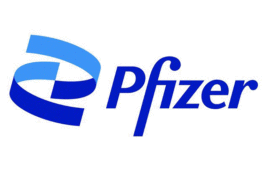 AbbVie has shared new efficacy and safety data for Rinvoq (upadacitinib) in adults and adolescents with atopic dermatitis (AD) from a trio of ongoing phase 3 studies. Spanning 140 weeks, these studies sustained the co-primary endpoints of Eczema Area and Severity Index 75 (EASI 75) and validated Investigator’s Global Assessment for Atopic Dermatitis 0/1 (vIGA-AD 0/1), both important measures of skin clearance and itch reduction. AD is a prevalent inflammatory skin condition, affecting roughly one in ten adults and about one-quarter of adolescents.
AbbVie has shared new efficacy and safety data for Rinvoq (upadacitinib) in adults and adolescents with atopic dermatitis (AD) from a trio of ongoing phase 3 studies. Spanning 140 weeks, these studies sustained the co-primary endpoints of Eczema Area and Severity Index 75 (EASI 75) and validated Investigator’s Global Assessment for Atopic Dermatitis 0/1 (vIGA-AD 0/1), both important measures of skin clearance and itch reduction. AD is a prevalent inflammatory skin condition, affecting roughly one in ten adults and about one-quarter of adolescents.
The company shared the data at the 32nd European Academy of Dermatology and Venereology (EADV) Congress in Berlin.
Efficacy of upadacitinib in Measure Up 1, Measure Up 2, and AD Up
The trials indicated a substantial number of patients on upadacitinib (administered in either 15 mg or 30 mg doses) achieving the set primary efficacy endpoints by the 16th week in the Measure Up 1, Measure Up 2, and AD Up phase 3 studies. Not only did patients on upadacitinib fare better than those on placebo in achieving the primary efficacy endpoints at four weeks, but they also had significant improvements in secondary measures. The JAK1 inhibitor was particularly effective in achieving high Eczema Area and Severity Index scores (EASI 90) and in providing relief from severe itching (WP-NRS 0/1). This efficacy profile remained steady throughout the duration of the 140-week studies.
“Previous analyses from the phase 3 Rinvoq studies showed major improvements in quality of life with both the 15 and 30 mg doses of Rinvoq,” said Dr. Jonathan Silverberg, lead study investigator and director of clinical research, George Washington University School of Medicine and Health Science. “The analyses just presented at EADV particularly examined the long-term efficacy of Rinvoq on skin clearance and itch reduction out to 140 weeks of treatment. The results showed continued high-level improvements in both skin clearance and itch reduction for both the 15 and 30 mg doses of Rinvoq.”
The bar graph below illustrates the percentage of patients who met specific endpoints in the Measure Up 1, Measure Up 2, and AD Up studies at week 140 for different doses. These endpoints encompass the Eczema Area and Severity Index 75 (EASI 75), the validated Investigator’s Global Assessment for Atopic Dermatitis 0/1 (vIGA-AD 0/1), the Eczema Area and Severity Index 90 (EASI 90), and the Worst Pruritus Numeric Rating Scale (WP-NRS) scores.
Safety profile in the phase 3 studies
The long-term extension of the three pivotal studies cemented the consistent safety profile of upadacitinib, with both the 15 mg and 30 mg doses well-tolerated. Clinical investigators found no new safety signals. Treatment-emergent adverse events were in line with previously observed outcomes and no significant discrepancies emerged in the treatment groups. Additionally, rates of adverse events of special interest were similar across treatment groups.
Upadacitinib’s multifaceted efficacy
A number of recent post-hoc analyses from the atopic dermatitis trials have “provided important insights into the efficacy of Rinvoq in AD,” Silverberg said.
Silverberg noted that studies are underway to that are scrutinizing the comparative efficacy of different dosing strategies for Rinvoq in AD. “Also, while updacitinib is currently approved for seven indications, including atopic dermatitis, it is also being studied in other immune-mediated diseases,” he added.
Regulatory milestones for upadacitinib
Upadacitinib won FDA approval for individuals with moderate to severe atopic dermatitis at least 12 years old in early 2022. The approval covered individuals whose dermatitis hasn’t responded to previous treatments or for whom other dermatitis therapies are not recommended. At that time, AbbVie projected upadacitinib’s risk-adjusted sales to surpass $7.5 billion by 2025. In 2022, the drug, together with the monoclonal antibody Skyrizi (risankizumab-rzaa), generated almost $7.7 billion of combined sales in 2022.
In August 2019, the FDA granted its first approval to upadacitinib as an oral JAK inhibitor for moderate to severe rheumatoid arthritis. By December 2021, the drug received further approvals for active psoriatic arthritis. In March 2022, it won approval for treating adults with moderately to severely active ulcerative colitis, followed by approval for active ankylosing spondylitis in April 2022. Later that year, in October 2022, the FDA extended the drug’s indication to adults with active non-radiographic axial spondyloarthritis. Most recently, in May 2023, the FDA greenlighted upadacitinib as a once-daily oral pill for moderately to severely active Crohn’s disease in adults.
Filed Under: clinical trials, Dermatology, Drug Discovery, Immunology, Regulatory affairs



